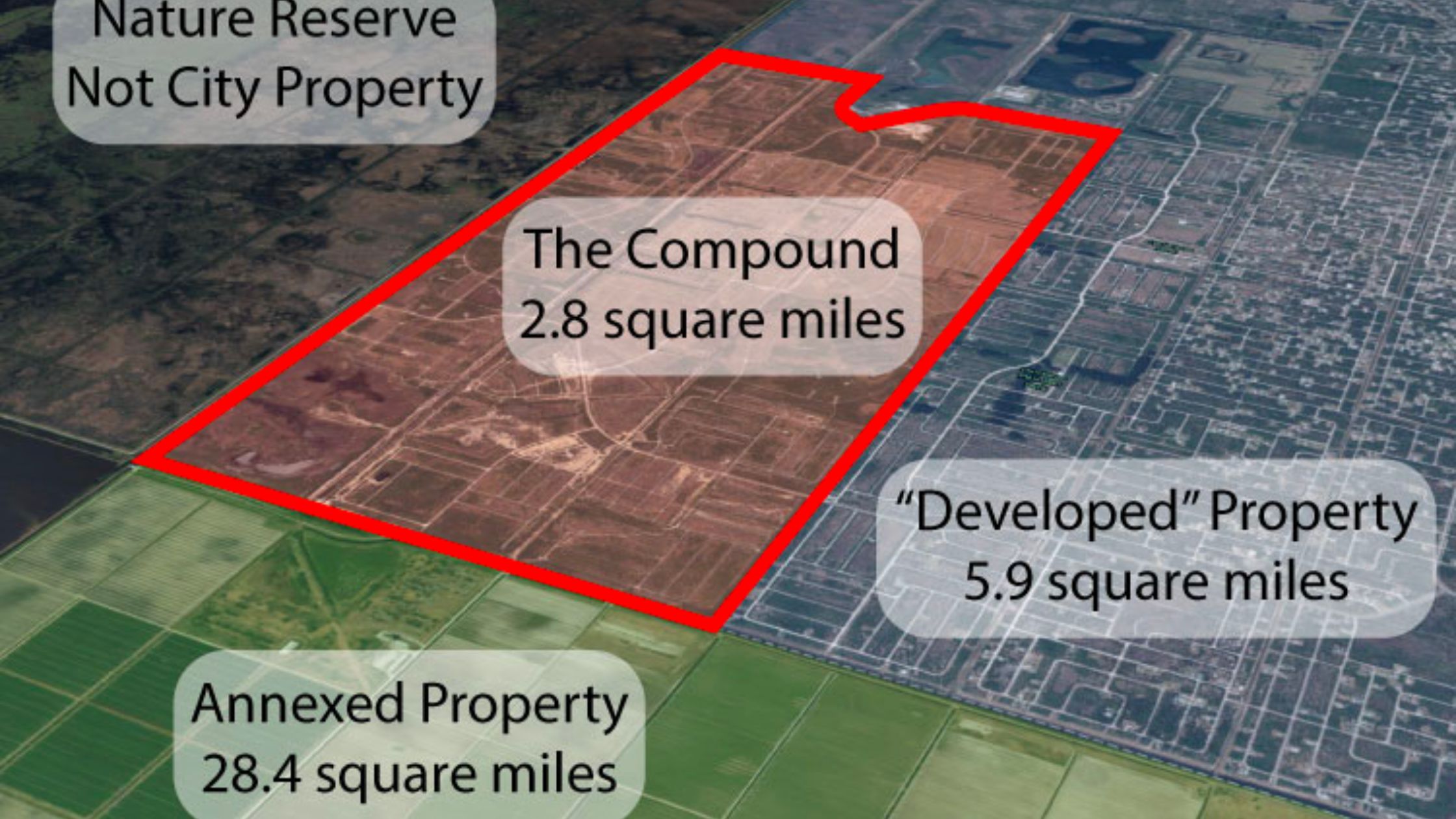In a significant legislative move, the Florida Legislature has introduced a joint resolution proposing an amendment to the State Constitution. This proposed amendment, titled “Section 33 of Article X,” aims to prohibit the state, counties, municipalities, or any other political subdivisions from paying reparations to descendants of enslaved individuals who lived in the United States before December 6, 1865. Senator Blaise Ingoglia R-Spring Hill, filed the bill. In March he filed a bill to eliminate the Democratic Party.

The resolution, if passed, would be a defining statement on the state’s stance regarding reparations, a topic that has been a subject of national debate. The bill proposes that this amendment be presented to the electors of Florida for approval or rejection in the next general election or an earlier special election specifically authorized for this purpose.
The text of the proposed amendment in ARTICLE X, SECTION 33, clearly states that “the state, a county, a municipality, or any other political subdivision may not pay compensation in the form of reparations to an individual who is a descendant of an enslaved individual who lived in the United States before December 6, 1865.”

This development has stirred varied reactions from different quarters. Proponents of the bill argue that it is a necessary step to define the financial responsibilities of the state and its subdivisions clearly. On the other hand, opponents criticize the proposal, viewing it as a setback to the efforts of addressing historical injustices and the long-term impacts of slavery.
Several states and cities in the United States have taken steps towards authorizing reparations related to slavery and racial injustice:
- California: The state established the California Reparations Task Force in 2020 to study and develop reparation proposals. Additionally, legislation requires insurance companies to disclose records related to insurance policies held by slaveholders on slaves.
- Illinois: Similar to California, Illinois has legislation requiring insurance companies to provide information on insurance policies held by slaveholders on slaves. Cities in Illinois have also made significant moves:
- Chicago: Enacted a reparations ordinance in 2015, providing $5.5 million in financial compensation to African Americans tortured by police from the 1970s to the 1990s, along with other forms of assistance.
- Evanston: Allocated the first $10 million in tax revenue from the sale of recreational marijuana to fund reparations initiatives addressing wealth and opportunity gaps for black residents.
- Asheville, North Carolina: Approved reparations in 2020, focusing on increasing minority homeownership, business ownership, career opportunities, and addressing disparities in healthcare, education, employment, and criminal justice.
- San Francisco, California: In 2023, the city’s Board of Supervisors unanimously accepted reparation payments of $5 million to eligible Black residents.
These initiatives reflect a growing recognition of the impacts of slavery and systemic racism, with varied approaches to addressing these historic injustices.
The inclusion of this amendment in the State Constitution would be a significant move, reflecting Florida’s stance on a complex and sensitive issue that intertwines with the nation’s history and ongoing discussions about race, equity, and justice. The outcome of this proposal, whether accepted or rejected by the voters, is set to have a profound impact on the state’s legal and social landscape.
The phrase “40 acres and a mule” refers to a post-Civil War promise made to newly freed slaves as a form of reparations. This idea stems from Special Field Order No. 15, issued by Union General William Tecumseh Sherman in January 1865. The order designated a swath of land along the Southeastern U.S. coast to be divided into 40-acre plots and given to freed slaves. The addition of a mule, which was essential for farming at the time, was not part of Sherman’s original order but became associated with it as part of the broader promise.
This plan was one of the earliest attempts to provide a form of reparations to former slaves to help them start new lives and build economic stability. However, after President Abraham Lincoln’s assassination, his successor, Andrew Johnson, reversed Sherman’s order, and the land was returned to its previous owners. Consequently, the promise of “40 acres and a mule” was never fully realized, and it has since become a symbol of unfulfilled government promises and the ongoing struggle for racial justice and equity in the United States.
In the context of the reparations debate, “40 acres and a mule” is often cited as an early example of the government’s recognition of the need for reparations and as a metaphor for the unmet obligations to African Americans for the enduring impact of slavery and subsequent institutionalized racism.
The argument for reparations is rooted in the belief that compensatory measures are necessary to address the long-standing consequences of slavery and systemic racial discrimination. Key points in this argument include:
- Historical Injustice: Slavery in the United States was a brutal and inhumane institution that inflicted immense suffering on enslaved people. Proponents of reparations argue that the effects of this historical injustice have created lasting economic, social, and psychological impacts on African American communities.
- Economic Disparities: The legacy of slavery and subsequent discriminatory practices, like Jim Crow laws and redlining, have contributed to systemic economic disparities. Reparations advocates assert that these disparities are a direct result of historical injustices and should be rectified through financial compensation and economic programs.
- Intergenerational Wealth Gap: The inability of enslaved people and their descendants to accumulate wealth has contributed to a significant wealth gap between white and Black Americans. This gap is seen as a direct consequence of slavery and ongoing discrimination, which reparations seek to address.
- Social and Educational Disparities: Proponents argue that the repercussions of slavery extend beyond economic factors, affecting educational and social opportunities for African Americans. These disparities are seen as systemic issues that need to be addressed to ensure equality and social justice.
- Moral and Ethical Responsibility: There’s a moral argument that society has an obligation to rectify the wrongs of the past. Reparations are viewed as a necessary step to acknowledge these wrongs and work towards healing and reconciliation.
- Legal Precedents: Supporters often point to historical precedents where reparations have been paid to other groups who have suffered injustices, arguing that descendants of slaves should be similarly compensated.
- Creating a More Equitable Society: Beyond rectifying past injustices, reparations are seen as a way to create a more equitable and just society, potentially addressing systemic racism and contributing to social cohesion.
- Recognition and Acknowledgment: Reparations are also seen as a form of official acknowledgment of the harm caused by slavery and its long-term effects, which is important for the collective memory and historical understanding of a nation.
The debate over reparations is complex, involving legal, economic, moral, and practical considerations. It’s a subject that continues to evoke strong emotions and diverse opinions across the political and social spectrum.




